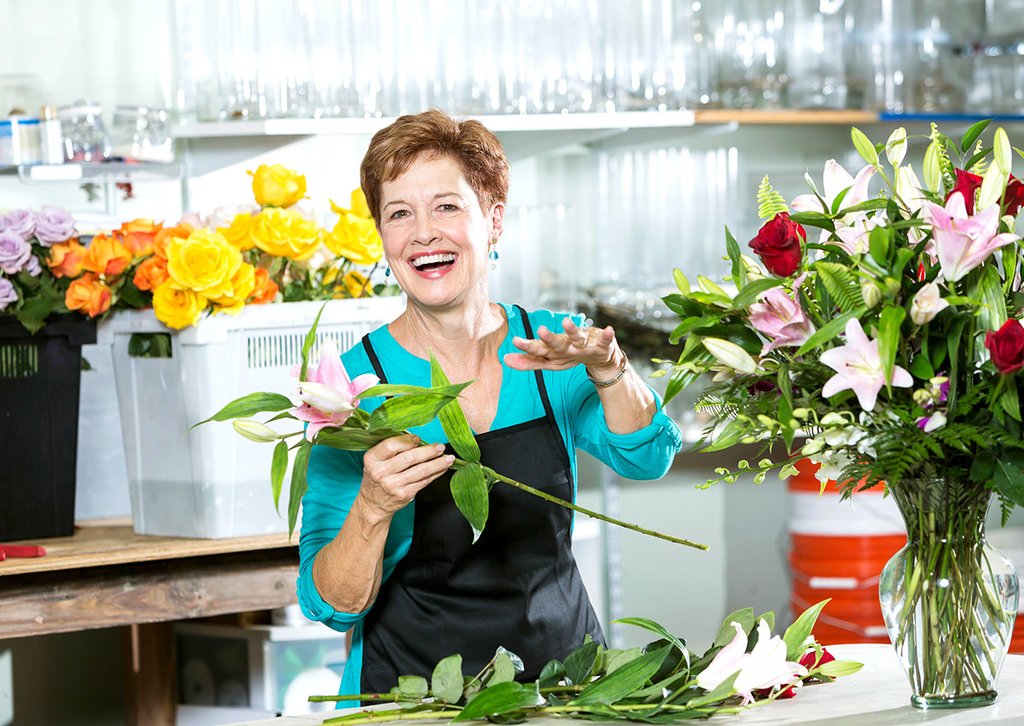Many men find that life after retirement brings new challenges for which they aren’t prepared. For those who find themselves a bit lost, there are solutions
By Wendy Haaf
Raising his children as a single parent while building a new career as a self-employed music teacher, Vic Maltby of Carleton Place, ON, never gave much thought to how he’d fill his days once he retired. Busy with his family and students and relatively solitary by nature, he didn’t feel much of a need to get out and meet people after moving to the community, despite working alone from home. Then Maltby’s kids grew up and moved out.
“I was here in my empty house and I thought it was great for a while, but then I realized that humans are social animals,” he recalls. “I got pretty lonely.”
Though he had no immediate plans to retire completely, Maltby realized he’d eventually need to find activities outside of work to find fulfillment and meaning.
While his occupation and single status might have brought these realizations on earlier than they might have dawned otherwise, Maltby is definitely not alone. According to Lyndsay Green, sociologist and author of Ready to Retire?: What You and Your Spouse Need to Know About the Reality of Retirement (HarperCollins Publishers Ltd., 2016), “Only 1 in 10 men—and I’m sure this applies to women, as well—has given any thought to his retirement beyond the financial aspect,” she says. “Work is much more than just a paycheque. We get so much from going to work every day—collegiality, fun, a place to go when we get out of bed, and most important, a purpose.” Small wonder, then, that research from the UK’s Institute of Economic Affairs found the probability of developing clinical depression increases 41 per cent in the two to three years after retirement.
There’s also evidence that on average, men are hit harder than women by the transition to post-retirement life.
“The suicide rates for men in Canada and the US peak around age 55, which seems to coincide with nearing retirement age,” says Marnin Heisel, an associate professor and the director of research in the Department of Psychiatry at Western University’s Schulich School of Medicine & Dentistry and a scientist at Lawson Health Research Institute in London, ON. Three times more men than women die of this cause. Worse yet, according to Heisel, interventions that have been proven effective at reducing suicide risk in older adults work only for women.
Whether the reasons are loss of identity as a breadwinner or less time spent pre-retirement developing friendships and interests outside of work, “for many men, there’s a sort of gap, and the transition can be challenging,” Heisel says.
So what can men do if they find themselves floundering once they retire—assuming they don’t want to start a second career or start their own business? Here are a few ideas.
Seek Professional Guidance
“One thing I recommend is that people get professional help,” says Green. Whether you opt for a career counsellor or life coach to help you explore the kind of volunteer positions that might best suit your aptitudes, skills, and interests, or for a therapist or psychologist who can help you work through your grief at losing your professional identity, talking to a professional can be useful. “It can help get you through,” Green says.
Join Men’s Groups
While counselling can help, Heisel says that many resist the idea. “Men typically don’t see therapy as something consistent with the masculine notion of being tough, self-controlled, and autonomous, and of not talking about feelings and relationships.”
To try to bridge that gap, Heisel and some colleagues decided to launch a group specifically for men over 55.
“We had done some research looking at adults in their mid-60s and found that those who reported finding more meaning in life at the very start of the study were protected against developing depressive symptoms and thoughts of suicide over the next two years, even accounting for the losses, transitions, and difficulties they experienced,” Heisel says. Based on that research, he says, “my colleagues and I proposed to—and were funded by Movember Canada to—develop and evaluate what we’re calling meaning-centred men’s groups.”
Meeting once a week over 12 weeks, Heisel says, “we begin by talking about finding meaning in work, what work means to you, what work means to your identity; we then shift to talking about leisure, recreation, volunteering, and mentoring.”
In the three groups that have completed the program so far, “life satisfaction, satisfaction with retirement, and a sense of connection with others all increased significantly,” Heisel says. “Friendships develop. One participant said at the end, ‘I didn’t know what to expect when coming into this—I was really struggling—and now I’ve found nine brothers I didn’t have before.’”
Though this is a pilot project, that’s not to say you couldn’t create a similar group of your own, guided by a clinical psychologist or therapist. In fact, participating regularly in men’s groups that aren’t meaning-focused may also be helpful. For example, in a weekly current-events discussion group that served as a comparison in Heisel’s research, he says, “people benefited, as well: they enjoyed getting together and we saw improved well-being.” While there’s not yet enough data to determine whether the gains are greater among those who attended the meaning-centred groups, “I think just getting out and being among others, not isolating yourself socially can be huge,” Heisel says.
Regular, more formal gatherings also have the advantage of providing a sense of accountability, he adds. “Once inertia sets in,” he explains, “it’s easy to say ‘I don’t feel like it today, but if somebody expects me to be there, I shouldn’t be letting them down.’”
Another example of a group specifically designed for men is Men on the Move, a Vancouver research program that’s part of Shape the Path, a larger project funded by the Institute of Gender and Health (one of the organizations under the umbrella of Canadian Institutes of Health Research). While it’s aimed at increasing the level of physical activity in older men by pairing them with an activity coach who can connect them with existing resources in the community and help them navigate Vancouver’s public transit system, Men on the Move also incorporates group meetings.
“That provides an opportunity for social interaction—one of the really big epidemics ahead of us is loneliness in older adults,” says Dawn Mackey, an associate professor of biomedical physiology and kinesiology at Simon Fraser University in Burnaby, BC, and a scholar with the Michael Smith Foundation for Health Research.
Volunteer
Volunteering is linked with benefits ranging from increased life satisfaction to decreased anxiety and depression: one landmark study, for example, found that people who acted as mentors or tutors to younger people were three times more likely to feel joy rather than despair when they hit 70.
It can be difficult, however, to find the right fit, particularly if you don’t have much previous volunteer experience—and unfortunately, there are few organizations that offer guided support. (A notable exception is Elder Service Corps, offered by CARYA (formerly Calgary Family Services).)
Sociologist and author Lyndsay Green recommends experimenting and, once you find an organization that might interest you, starting at the ground level to gain an understanding of how it works and how you might like to contribute. Or consider sampling different brief, time-focused volunteer opportunities, such as collecting toys during the holidays for a community agency or serving dinners during Thanksgiving. “That can be a way of testing, finding out whether this is an area you want to work in,” Heisel says.
If you can’t find a group that suits you, consider founding your own. Eric Dahli of Victoria, for example, found himself organizing a cleanup of derelict boats on the beach near his home. His group, now known as the Dead Boats Society, is now working towards establishing a system to help ensure that boats with people living aboard are securely moored.
Having boats blow out to sea or onto the beach isn’t an uncommon occurrence: due to a housing crunch, inexperienced boaters may opt to live aboard a vessel, with predictable consequences. “Someone will come in and drop something down to the ocean floor, put a buoy on top, and moor the boat, but not everyone is good at knowing where the winds are coming from and what’s going to happen,” Dahli says. “We’re going to bring some semblance of order to our little bay here. And we’re having lots of fun.”
Consider Men’s Sheds
If you’re looking for a relatively informal, flexible venue for getting together with other men and possibly learning new skills, or contributing to a community cause without necessarily committing to a fixed schedule, a Men’s Shed might be the answer.
Begun in Australia in 2007, Men’s Sheds is a movement that fights isolation and loneliness among retired men by expanding the notion of a man’s backyard shed to a communal space where men meet . Today there are more than 900 Men’s Sheds groups in Australia alone and growing numbers in New Zealand, Ireland, the UK, and Canada (12 Canadian groups, at last count, including five in British Columbia).
“Each Men’s Shed does its own thing,” says Doug Mackie, who founded the first Canadian Shed in 2011 in Winnipeg and is a founding member of the Canadian Men’s Sheds Association (menssheds.ca). Operating two days a week, Winnipeg’s Woodhaven Men’s Shed offers a chance for men to hang out, play cards, drink coffee, listen to a speaker, join in making a communal meal, and participate in activities such as making stained glass or whittling walking sticks. “At age 77, my number of friends would normally be diminishing, but because I’m involved with Men’s Sheds, it’s expanding,” Mackie says.
This concept appealed to single empty-nester Vic Maltby, who, after struggling to find enough members and a suitable space, started the Hackberry Men’s Shed in Carleton Place, ON. Following some initial get-togethers to assemble wooden toys for a fundraiser, the group of a dozen-plus now gathers in the garage workshop belonging to one of Maltby’s neighbours, who is happy it’s being used. “She likes having people around, and we in turn help her with maintenance of her house and yard,” Maltby says.
He and the other members have contributed to a number of organizations, from making picnic tables for a community group and doing some painting at a local women’s shelter to building bat boxes for researchers at the Canadian Wildlife Federation, learning new skills from one another in the process. Despite describing himself as someone who doesn’t make friends easily, Maltby now has a whole new set.
“I’m sure if something happened and I needed some help, they would pitch in, and I certainly would reciprocate,” he says. “Being part of the group expands your support network, not just your social network.”
Photo: iStock/kali9.






